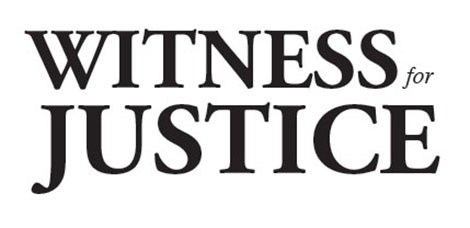Commentary: Racial Justice
 Racial justice is the systemic fair treatment of all people that results in equal opportunities and outcomes for everyone. This understanding of racism focuses not on individual prejudices, nor explicit intentions; It depends not on personal feelings or “common sense.” Instead, fairness is found (or not found) in the actual impact of institutions and policies on the livelihood of those being affected and on the future prospect of their children and their children’s children. Two recent studies – one on student loan delinquency, another concerning building family assets – offer us examples to explore and point to possible policy solutions.
Racial justice is the systemic fair treatment of all people that results in equal opportunities and outcomes for everyone. This understanding of racism focuses not on individual prejudices, nor explicit intentions; It depends not on personal feelings or “common sense.” Instead, fairness is found (or not found) in the actual impact of institutions and policies on the livelihood of those being affected and on the future prospect of their children and their children’s children. Two recent studies – one on student loan delinquency, another concerning building family assets – offer us examples to explore and point to possible policy solutions.
The Mapping Student Debt project by the Washington Center for Equitable Growth found that higher levels of incomes are associated with fewer problems with student loan delinquency. This may not be surprising on its face, however, when they analyzed those delinquencies by zip code, even when considering the same income level across all communities, they found that delinquency is disproportionately experienced by African American and Latino communities. Moreover, middle-class African Americans and Latinos were hurt the most by student loan delinquency. That is, the impacted are “[t]hose who have taken out debt to go to college but who haven’t been able to find jobs or don’t have sufficient family wealth to pay it back.” In other words, the researchers found that “the geography of delinquency is highly racialized,” and that these outcomes are the result of “structural racism in higher education, the credit and labor markets, and wealth distribution.” (Other research on housing, school segregation patterns, and incarceration rates have also demonstrated that class alone cannot, without race, explain inequality.)
Similarly, a policy brief by the Annie E. Casey Foundation, titled Investing in Tomorrow, points out that the federal incentives to help families save and build assets disproportionately benefit families with assets in U.S. history, and “creates particular disadvantages for families of color, who are less likely to having savings or inherited resources.” Family assets critically correlate with indicators of child well-being, and hence affect the prospects of people of color for generations.
For example they found that “the typical white household has slightly more than one month’s income in easily accessible savings, compared with just 12 days for the typical Latino household and only 5 for the typical African American household.” Because “investing in families allows families to invest in themselves,” the policy brief recommends that we update our public policies to: (1) make available portable, safe accounts for retirement and emergency savings; (2) raise asset limits for public benefit programs; (3) expand access to homeownership; (4) support efforts to build savings from birth.
Racial disparities are similarly present in unemployment rates, salary and wages, poverty, and indeed, the workings of economy itself. While these inequities are stark, they are often invisible to those who do not experience them. Often experiences of systemic unfairness are dismissed by others on the basis of their own personal experiences and hardships. [1]
Because racial justice was absent from the founding of U.S. society, each generation must choose to pursue it and advance our nation toward ideals of equality and a more perfect union.
Elizabeth Leung is Minister for Racial Justice.
View this and other columns on the UCC’s Witness for Justice page.
Donate to support Witness for Justice through the Neighbors in Need offering.
Click here to download the bulletin insert.
[1] See “The hard-knock life? Whites claims hardship in response to racial inequity” Journal of Experimental Social Psychology 61 (2015) 12-18.
Related News
New Life in Harm Reduction
Last Sunday, the Harm Reduction Family Love Feast formally re-launched our monthly worship...
Read MoreImagine Together
This election year registered voters had the opportunity to take our values to the polls...
Read MoreOne Sure Thing
The deadline for this column was one day before the November 5 election. By the time you read...
Read More
